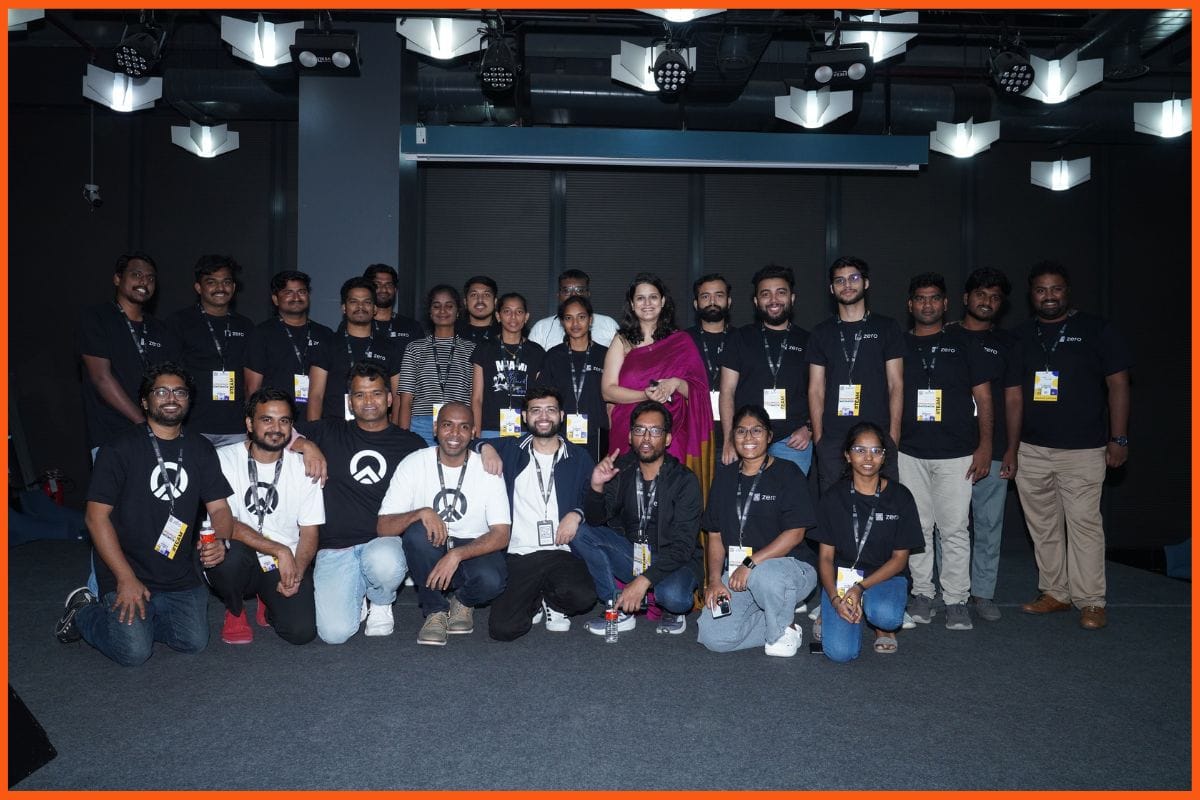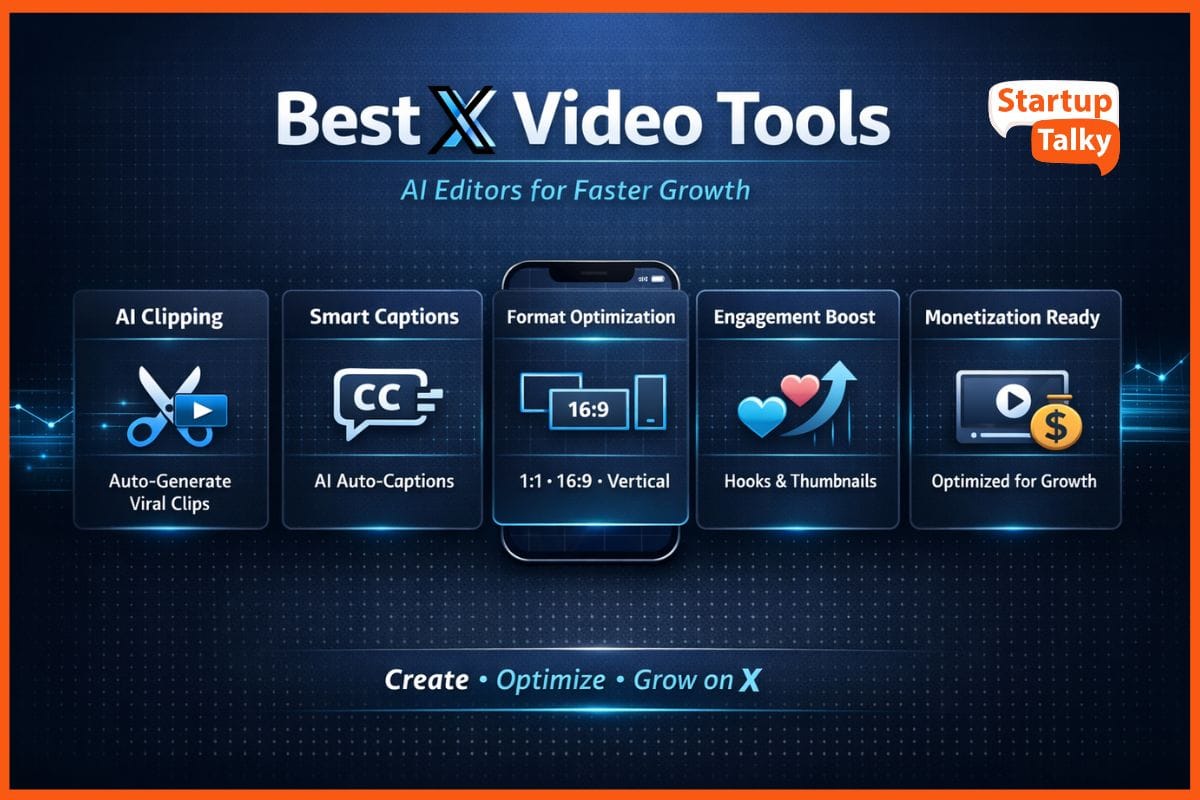What Is A Webinar And How Does A Webinar Work? | Benefits Of Hosting A Webinar?
saas
What is a Webinar? A webinar is essentially a blend of the words web and seminar. It’s better defined as a lecture, live presentation, meeting, or event that is conducted entirely online and attended by an exclusive audience. They are powerful tools that businesses use to market products, educate customers and even train employees.

A recent webinar strategy report revealed that 77% of marketers use webinars in their lead generation efforts. But you can use webinars for customer support, lead nurturing, and so much more. Webinars can be held live or they can be pre-recorded and automated.
Webinar software runs this online video conference meeting. The person holding the seminar is referred to as a “host” and they invite attendees to watch and participate in an online session that can last anywhere from 10 minutes to 2 hours.
In most of the webinars, the presenter can't see the audience whereas the audience might or might not see the presenter. But the audience has the option to type in their queries to the presenter to which they can respond.
Webinars Are Great For
The basic purpose of a webinar is to present a topic that is engaging, relevant and informative to audience, however you can also use it for,
- Showcasing new products and services
- Selling b2b products
- Engaging blog audiences
- Creating onboarding or training videos for employees
- Selling SaaS products (or software)
- Nurturing existing customers
- Acquiring leads
And the list goes on.

Benefits Of Webinars
There are many benefits of using webinar to host your event or presentation. Here are some of them,
Webinars Are Cost Effective
One thing can come in mind that how much does a webinar cost? Webinars cater specifically to an online audience of interested users. Unlike webcasts, there’s no physical location necessary for everyone to join. Thus, you don’t need to pay for many of the things a physical seminar would entail, like renting a room and arranging for chairs. The attendees don’t have to pay much (if anything) to attend these online meetings, and they make excellent business sense for them, too.

The cost of arranging a webinar is usually between $100 to $3,000, which is a fraction of the cost of organizing a live, physical conference. However, if you use a webinar platform like WebinarJam, you can save yourself a lot of money as they only cost $1 for a 60-day trial. Thus, it’s a very cost-effective medium of engaging your prospective leads.

Create Business Relationships
The benefit of speaking to a group of potential prospects through a webinar is it allows your prospects to get to know you on a much deeper level than what could possibly get accomplished in a 30 second commercial at a networking event. After all, people don’t do business with companies. People do business with people. In a webinar you have the time to allow your attendees to get to know you as a person, like you and trust you from the insights and content you share.
Lead Generation
Webinar attendees provide information to attend your webinar. You can also have virtually unlimited attendees at a single webinar. From a bare-minimum standpoint, that's like collecting a bunch of business cards. But it's much more than that. Webinars themselves provide the benefit of almost filtering out, or building up a lead. Since they were interested in attending your webinar in the first place, you’ll know they’re a qualified lead.


They were seeking the benefit of your webinar first; this means they're interested in what you have to offer. Also the kind of information you receive from your participants through your webinar software can be very valuable. It may be that you can collect potential leads' job titles, responses to any polls or Q&A's you used in your webinar - and much more intimate data than simply a name and email address.

Reach your target group both live and afterwards
A webinar gives you the opportunity to continue to reach your target group when the broadcast is over, since each webinar can also be watched afterwards. This enables you to increase both the reach and the impact of your message. Needless to say, it is important that your webinar can be found easily via Google, which is why a well-designed webinar is search-engine optimised (SEO).
Can be attended from anywhere in the world
Using a webinar platform to create your webinars can help you do away with the problems of social media integrations and setting up billing. More importantly, they handle the constraints of addressing a vast audience in a unique way. Most webinar platforms allow you to reach a vast, expansive audience all over the world, no matter where you are.
The logistical cost of attracting attendees from all over the world for a physical conference or event is not possible in most cases unless a 6,7 or 8 figure deal is on the cards. That’s beyond the reach of a small or medium-sized business. Webinars, on the other hand, allow you to target prospective leads all across the globe at virtually no logistical cost or support involved, no matter what the size of your business.

Webinars can be recorded.
In repurposing your content, you also allow your audience to relive your content – and video recordings of the event help your audience to analyze and understand your content as thoroughly as possible. Unlike traditional conferences, it’s extremely easy (and cost-effective) to record your entire webinar – and your audience will thank you for it!
What is a webinar software?
Many people don't know what is a webinar software? A Webinar software refers to the tools we use to make webinars, allowing us to deliver content in a convenient and engaging way. They’re effective at converting passive viewers into leads and revenue. Webinar software allows you to create an interactive experience online.
- Attendees can use the chat section to ask questions at any time.
- Hosts can take polls and surveys to keep attendees engaged and gather data.
- Screen sharing can be used to give live demos.
- Hosts can make exclusive product offers for attendees during sessions.
- The best webinar platforms enable selling and have a bunch of bells and whistles for marketing your webinar (getting attendees to sign up).

What Is a Use Of Webinar In SaaS?
These are just some of the benefits that Webinars can provide to your SaaS business.

Create Long-term Impact
Although a webinar runs for an hour or two, it’s content persists for a longer period of time. With the help of replays, your webinar content will be living in the minds of your audience for months and even years. That means you can be ensured about the longevity of what you’ve created. So avoid topics which don’t have a long shelf life. Another effective way to get the most out of your webinar replays is to play them in a series
Interactive
Webinars are great for SaaS because they enable you to be more productive (sales-wise), to nurture leads and generate new ones. You can reduce the number of interactions by qualifying your marketing leads using webinars. The simple fact that they attend the webinar already tells you if they're willing to engage with you. Then you can monitor their firmographics, their participation rate, their level of engagements and more.

Proves Your Authority
If you’re coming up with an effective webinar, it’s easy to showcase your expertise and establish authority with your viewers. Studies suggest that webinars are more engaging when compared to written content. The major difference between reading a book and being an attendee of a great webinar lies in one major aspect. In the latter, the interaction is more because you can hear, communicate, possibly even see the host who has organized the webinar. So, the overall communication is great. Before getting into a business relationship with your company, the prospects will certainly want to know who are the faces behind it and webinars make that more palpable in the world of digital marketing.

Boost The Range Of Your Content
Create great slides - you can easily use them again for a Slideshare presentation, crafting a blog post, or sharing the same in your next email newsletter. Just like generating cornerstone content, your SaaS can attain long-term growth while reusing the contents.
Follow up with event attendees
Sharing mind-blowing information and hosting lively and engaging webinars isn’t enough to deliver the results you’re after, however. Here, the follow-up process is just as crucial – you need to constantly reinforce the value of your company in your audience’s mind.
Send follow-up emails a day or two after the webinar or set up a drip campaign and try and guide your audience down the sales funnel by drawing the content/comments you shared in your presentation. Sharing recordings of your past webinars is also a great way of maintaining a relationship with your customers in addition to making information easily available to them.

Few Tips To Help Your Webinars Stand Out
- Keep them between 30-45 minutes long:
Not many viewers want to stick around for an hour to listen to you talk. In fact, recent studies show that 41% of attendees prefer webinars of 30 minutes, and 44% of attendees prefer those up to 45 minutes long. - Research your attendees:
The eventual goal of your webinar is to generate leads and make them purchase your product or services. Thus, you need to know what type of audience is attending your webinar. Before you host the webinar, it’s decidedly useful to conduct thorough research on the type of people that are attending, their demographics, professional domain and expertise, and industries they belong to. It helps you get a brief idea about what your audience is expecting from you. - Morning is the best time to hold one – Attendees prefer webinars held at 10 or 11 am
- Leverage Analytics:
It is essential to leverage analytics to understand what kind of message your audience is most responsive to.
Not only this, there are plenty of analytics tools like Google Analytics and Facebook Insights that can provide you with a far more detailed, customized, and personalized breakdown of traffic on your webinar concerning a variety of parameters. With analytics, you get data specific to your business that is aimed at maximizing the potential of your webinars. - Always hold a Q&A at the end – 92% of webinar attendees want a live question and answer session at the end of a webinar
- Wondering how many attendees is a good number? The average number is 148.
- Announce webinar beforehand:
You should also plan to announce your webinars numerous times before launch, including via emails, social media, and other teasers. Making a short promotional video and uploading it on to your social media sites, Reddit, or YouTube accounts can also bring in large numbers of attendees. - Well timed promotions:
The time and day of the webinar are not the only significant influences on attendance. The date of the announcement of the webinar is another essential factor in the registration rate. The 2017 Webinar Benchmarks Report found out that 25% of registrations occur on the day of the webinar, whereas 23% of registration occurs more than two weeks before.
Conclusion
All things considered, webinars are one of the most cost-effective elements of any SaaS marketing strategy. Webinars are great for any SaaS business because you either have to show off your software or train your customers to use the platform (or both!) in a scalable way. By conducting your presentation in a thoughtful and engaging manner – and sticking to some of the best practices I’ve discussed – you will find that the rest of your marketing objectives may be easier to achieve too.
Now that you know how webinars can be of great importance for SaaS Business, check Best Webinar Platforms that you can use to conduct a webinar.
Frequently Asked Questions About Webinar
What is a Webinar and how does it work?
A webinar is essentially a blend of the words web and seminar. It’s better defined as a lecture, live presentation, meeting, or event that is conducted entirely online and attended by an exclusive audience. They are powerful tools that businesses use to market products, educate customers and even train employees.
Can they see you during a webinar?
In most of the webinars, the presenter can't see the audience whereas the audience might or might not see the presenter. But the audience has the option to type in their queries to the presenter to which they can respond.
What is the purpose of a webinar?
The basic purpose of a webinar is to present a topic that is engaging, relevant, and informative to the audience that might be your customers as well whom you are presenting your product or service. It can be used for Showcasing new products and services, selling b2b products, Engaging blog audiences, Creating onboarding or training videos for employees, Selling SaaS products (or software), Nurturing existing customers, Acquiring leads.
Do I need to be on camera for a webinar?
It depends upon the requirement of the host as well as your requirement. To attend the webinar the few things you should have are a computer, tablet, or mobile device, as well as a good internet connection, a webcam, and an audio microphone and you are good to go.
How do I join a webinar?
Register: Register for the webinar by clicking on the link in the email invite.
Join: At the time of the webinar, click the join link in the confirmation email or your calendar invite.
If you arrive before the organizer, you'll see a window confirming that you successfully connected.
Do webinars really work?
A recent webinar strategy report revealed that 77% of marketers use webinars in their lead generation efforts. But you can use webinars for customer support, lead nurturing, and so much more. Webinars can be held live or they can be pre-recorded and automated.
Must have tools for startups - Recommended by StartupTalky
- Convert Visitors into Leads- SeizeLead
- Website Builder SquareSpace
- Run your business Smoothly Systeme.io
- Stock Images Shutterstock






